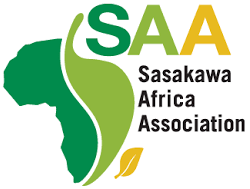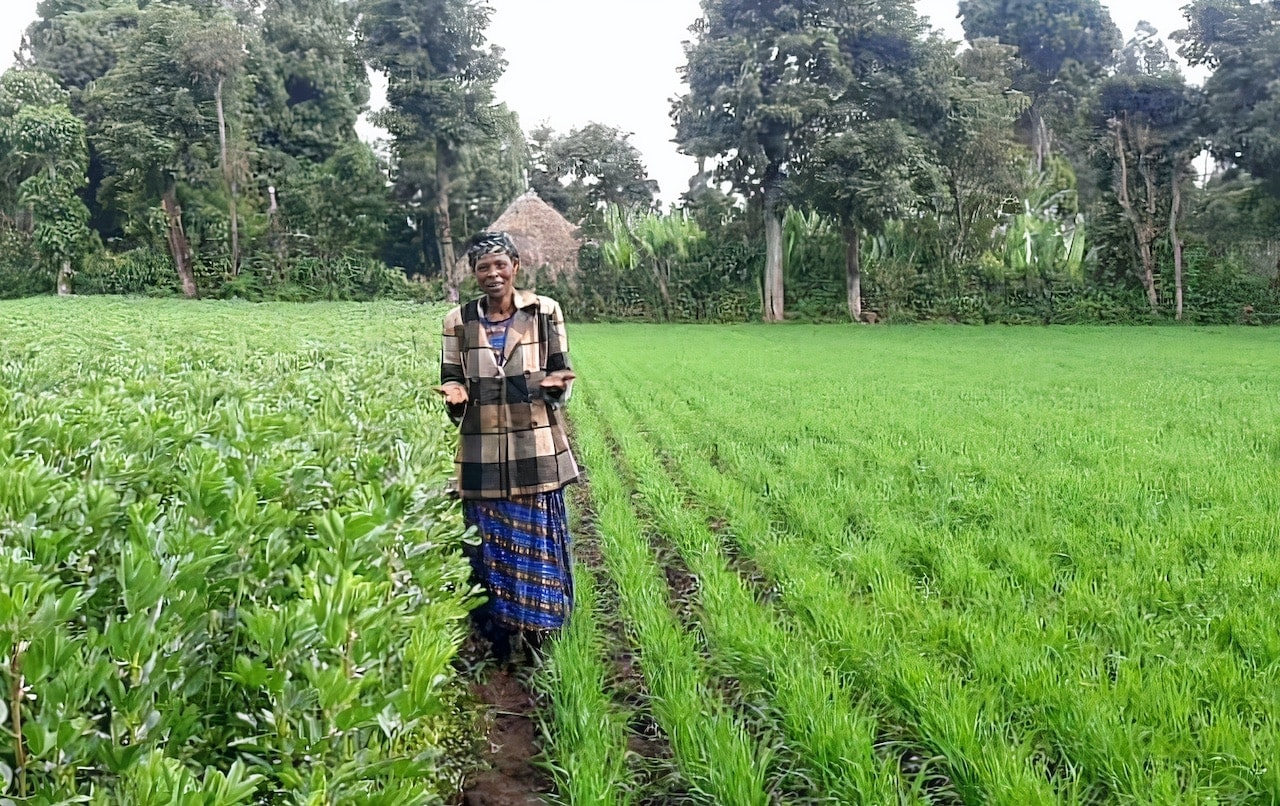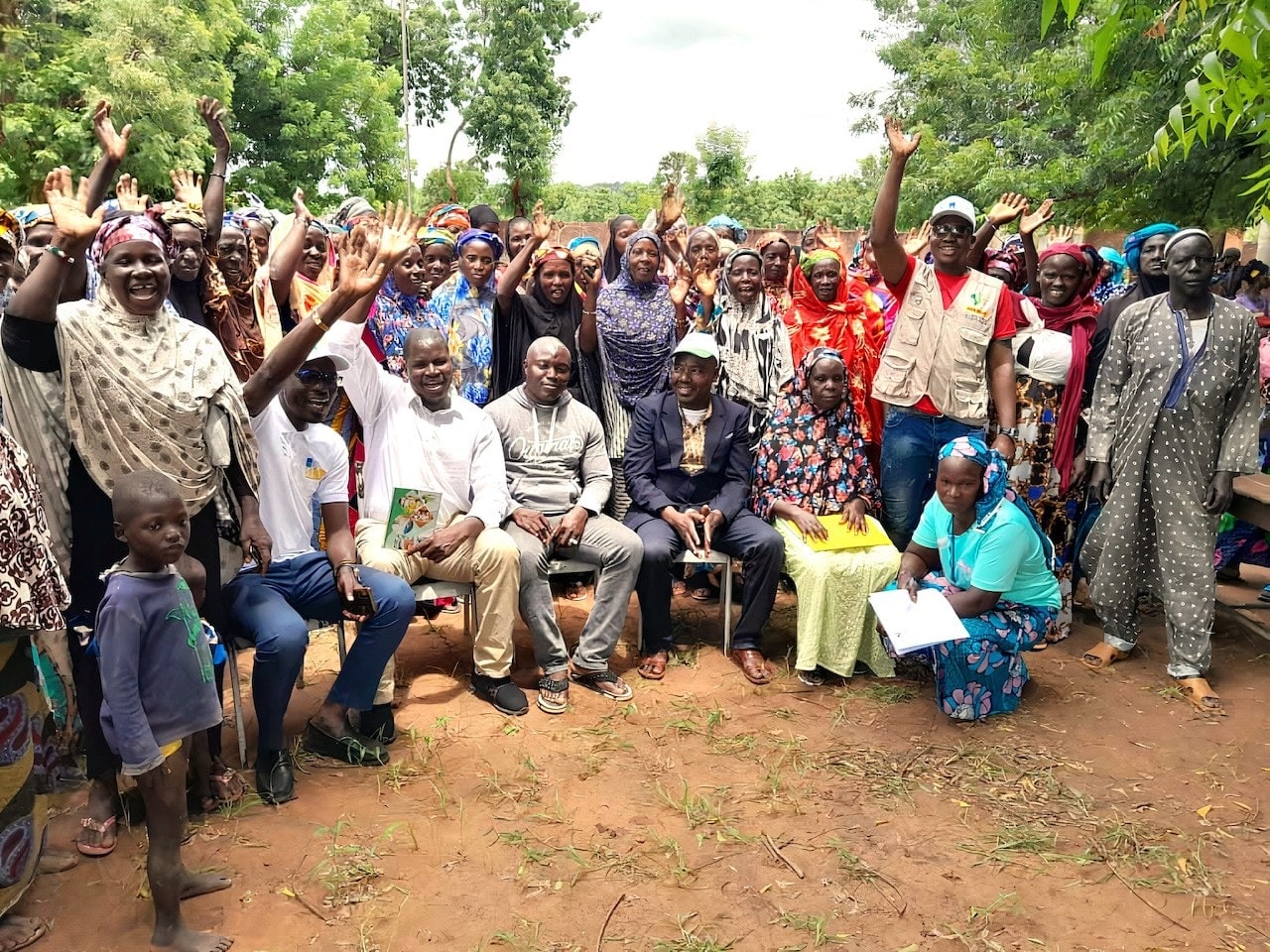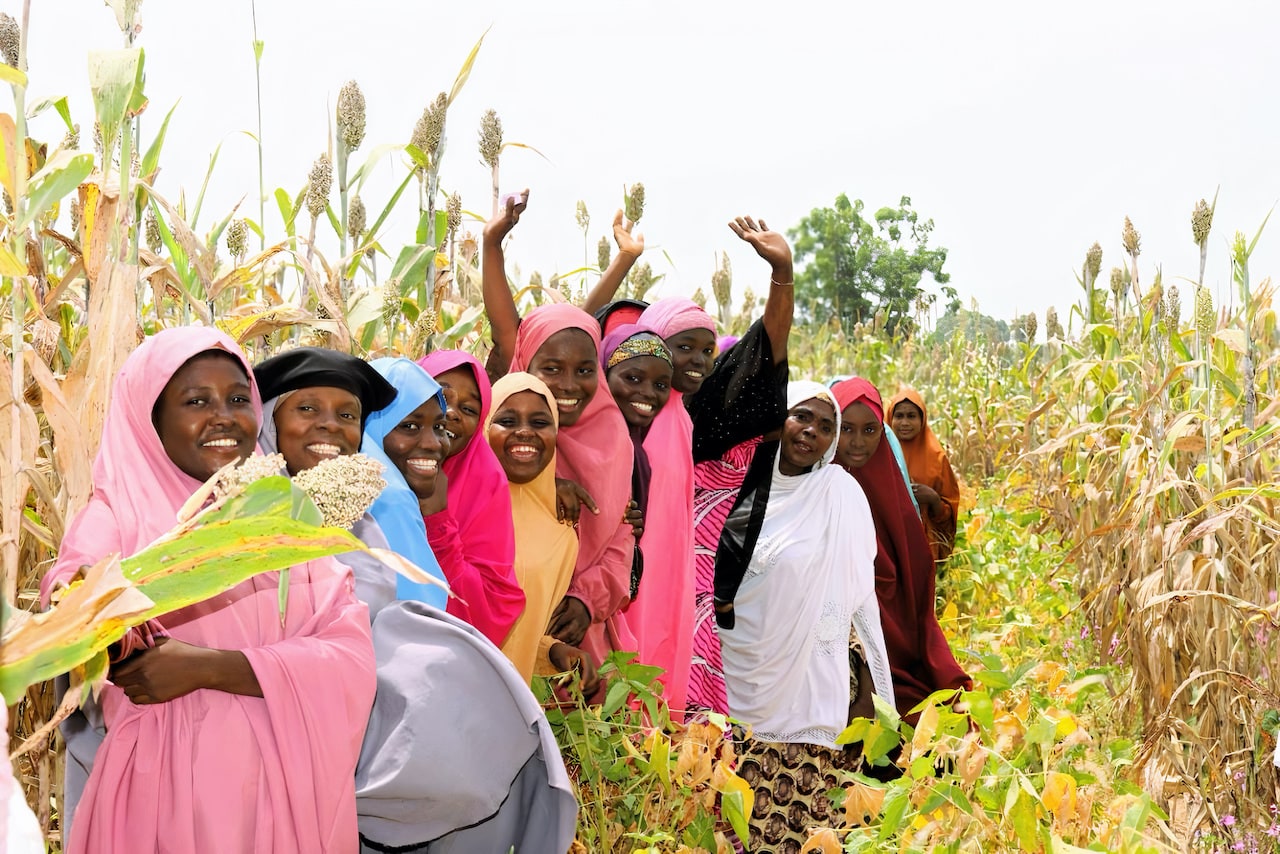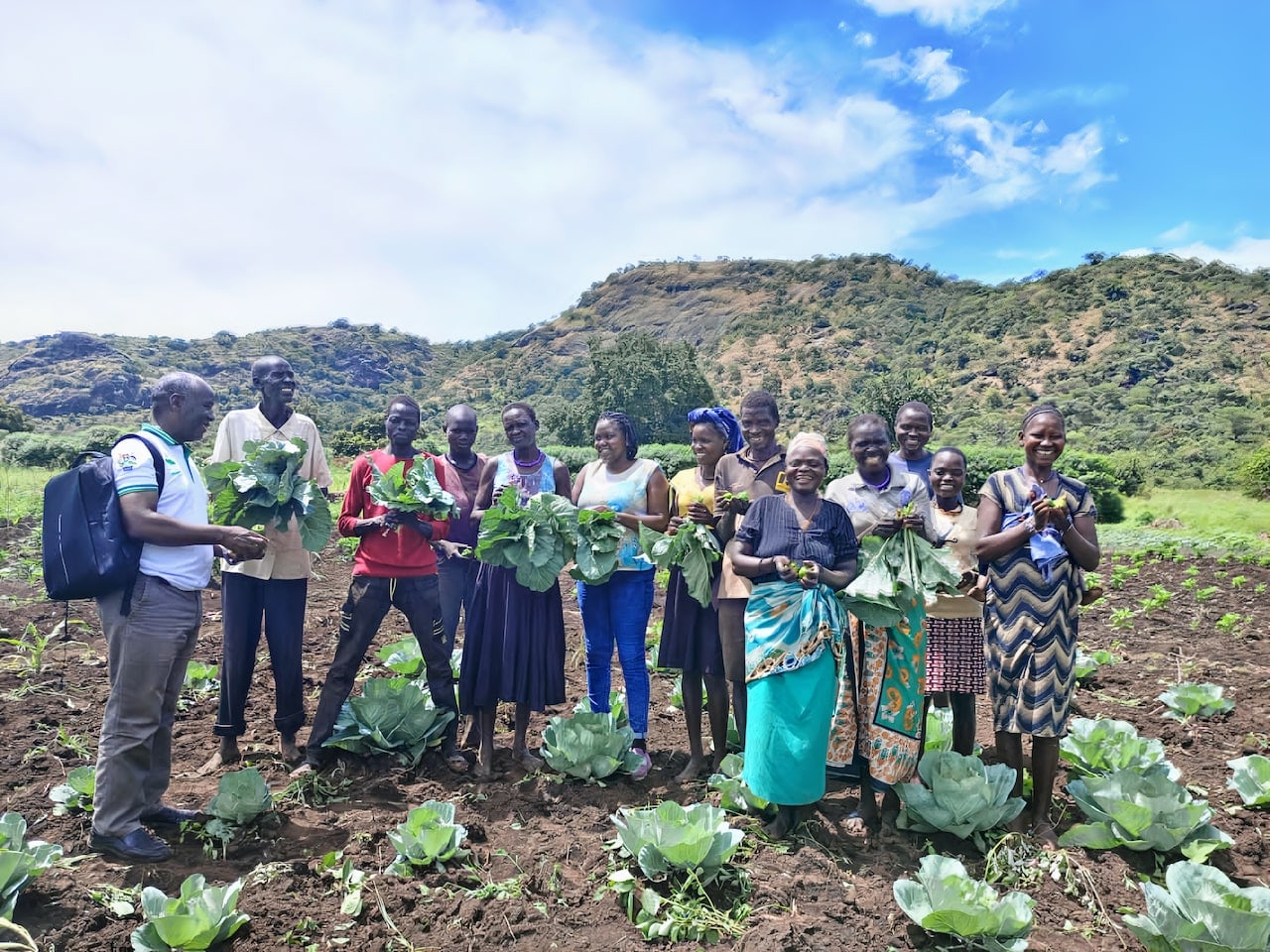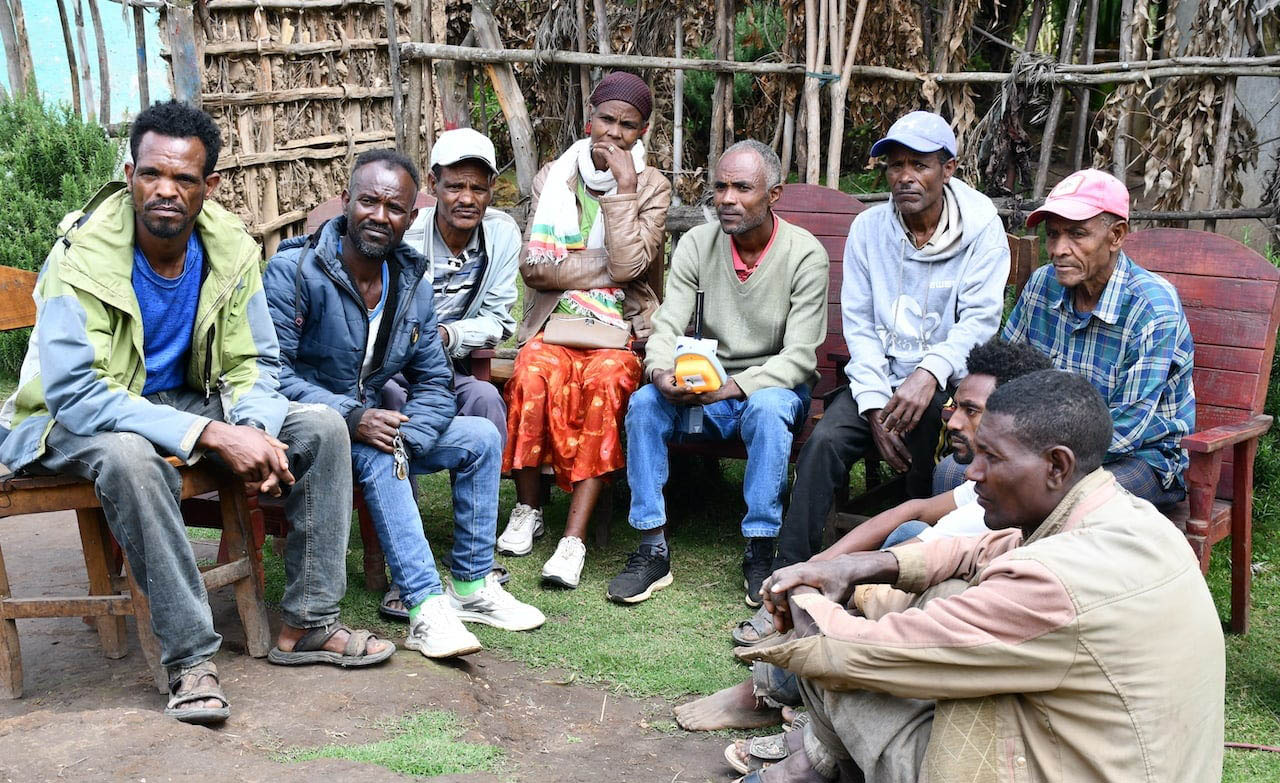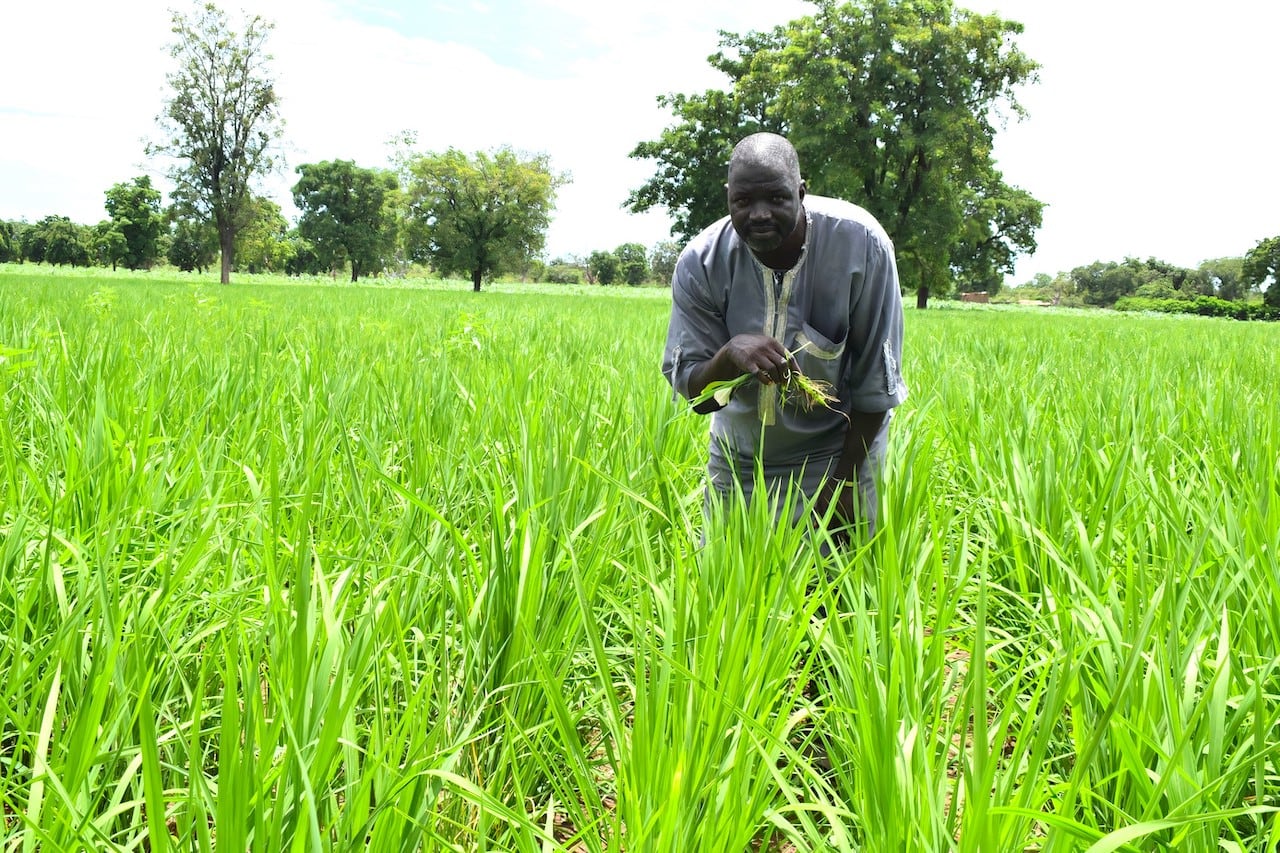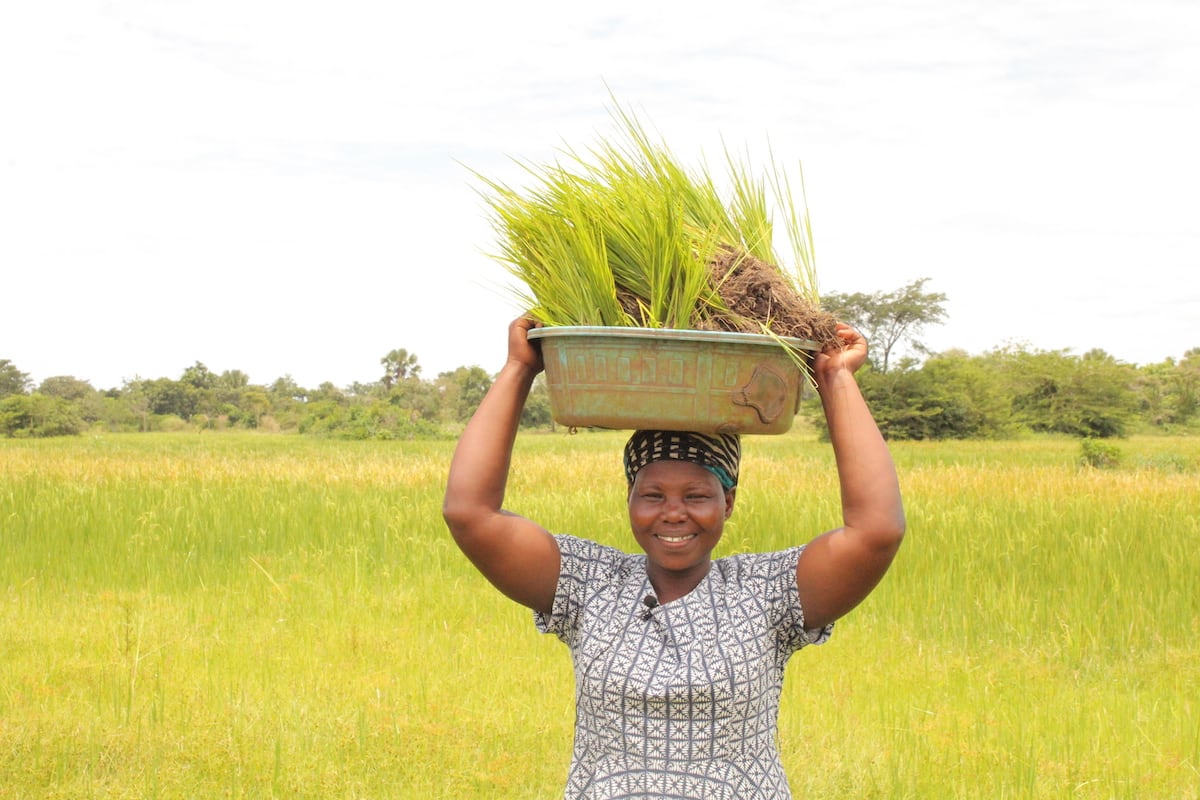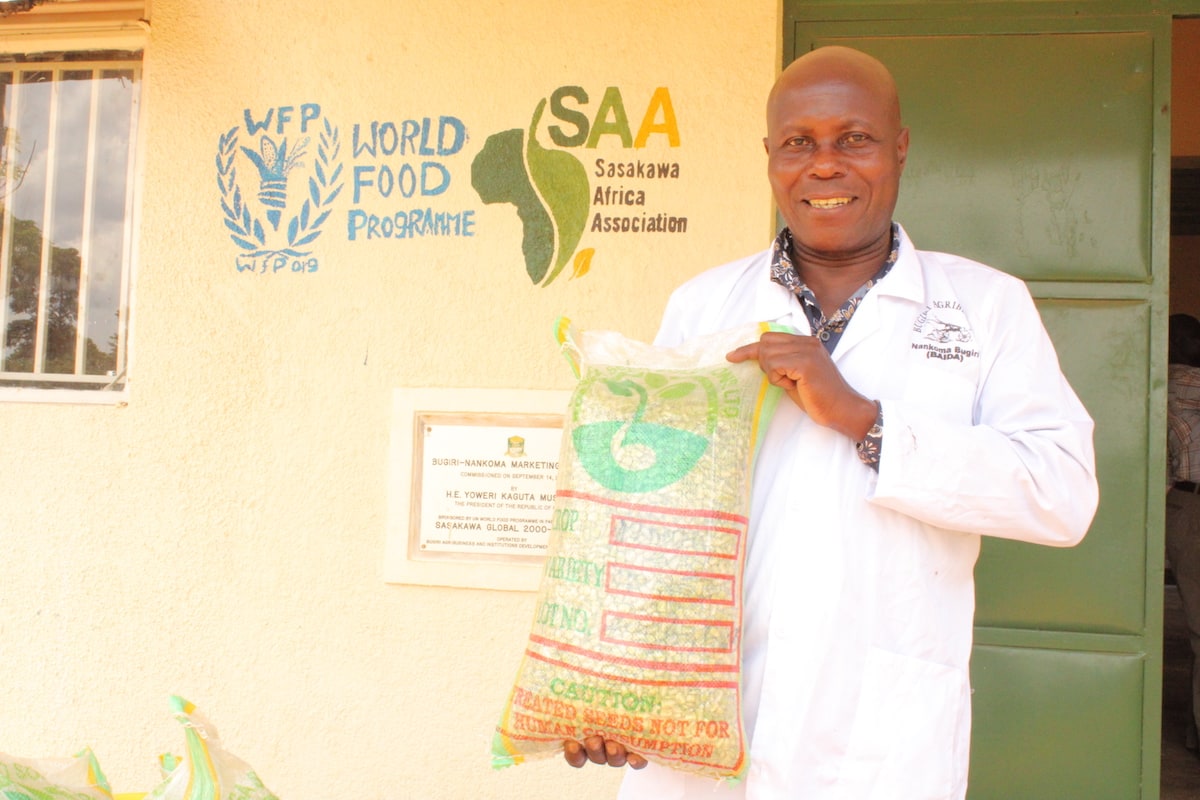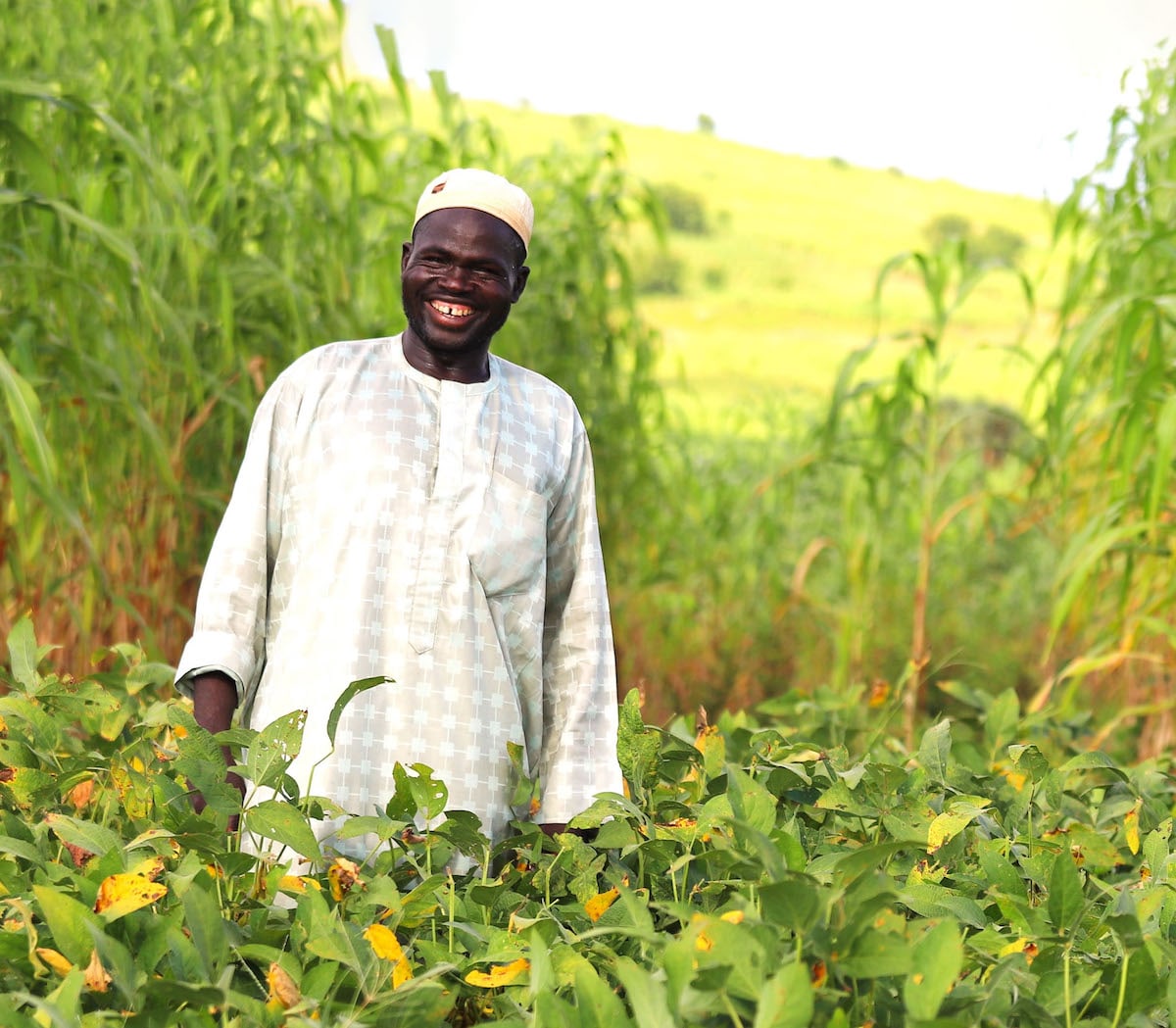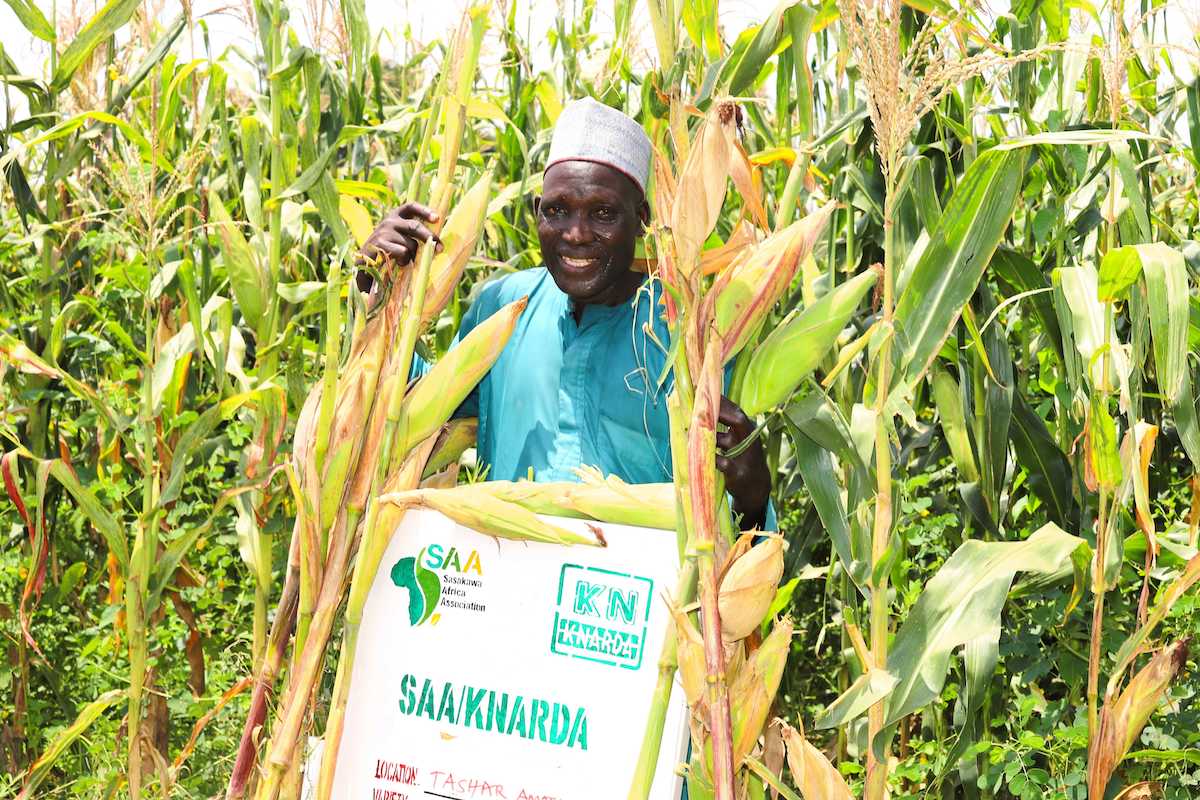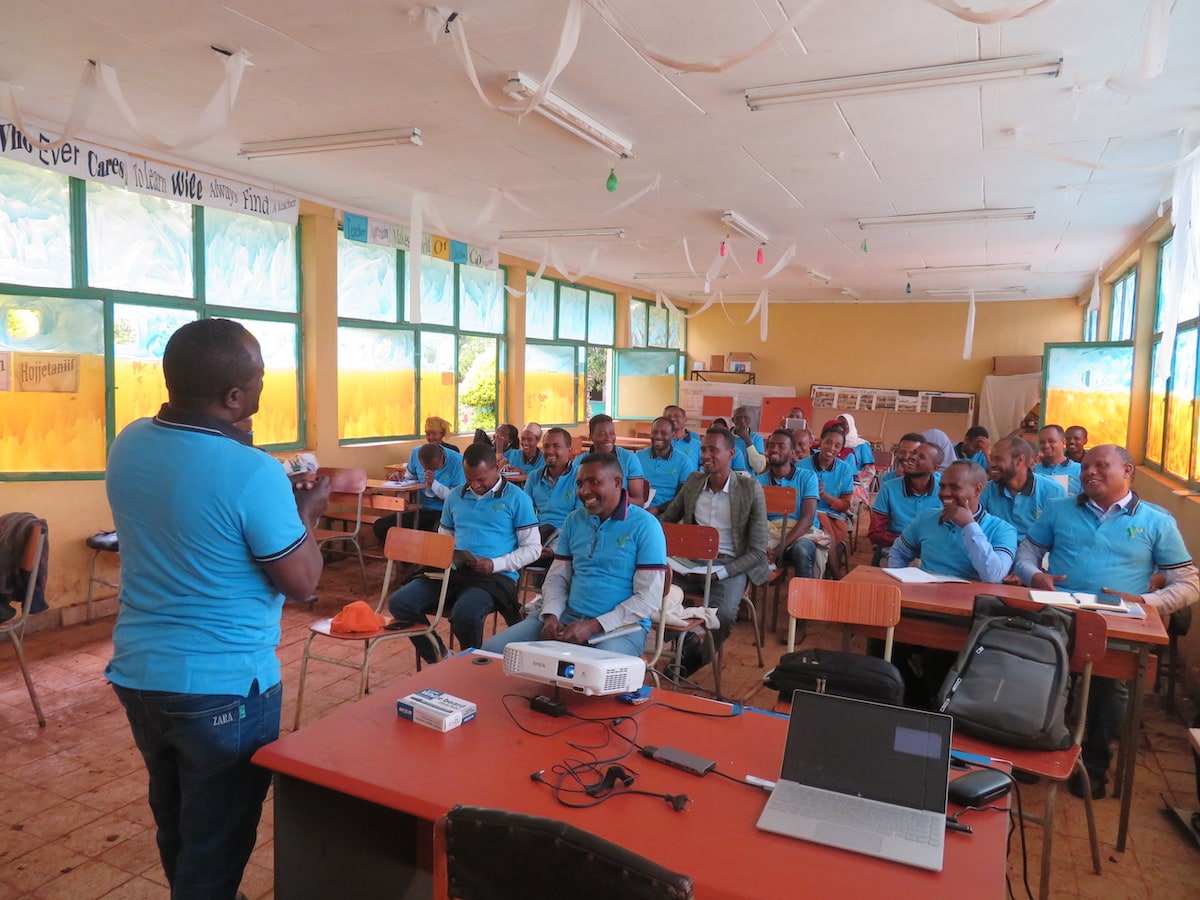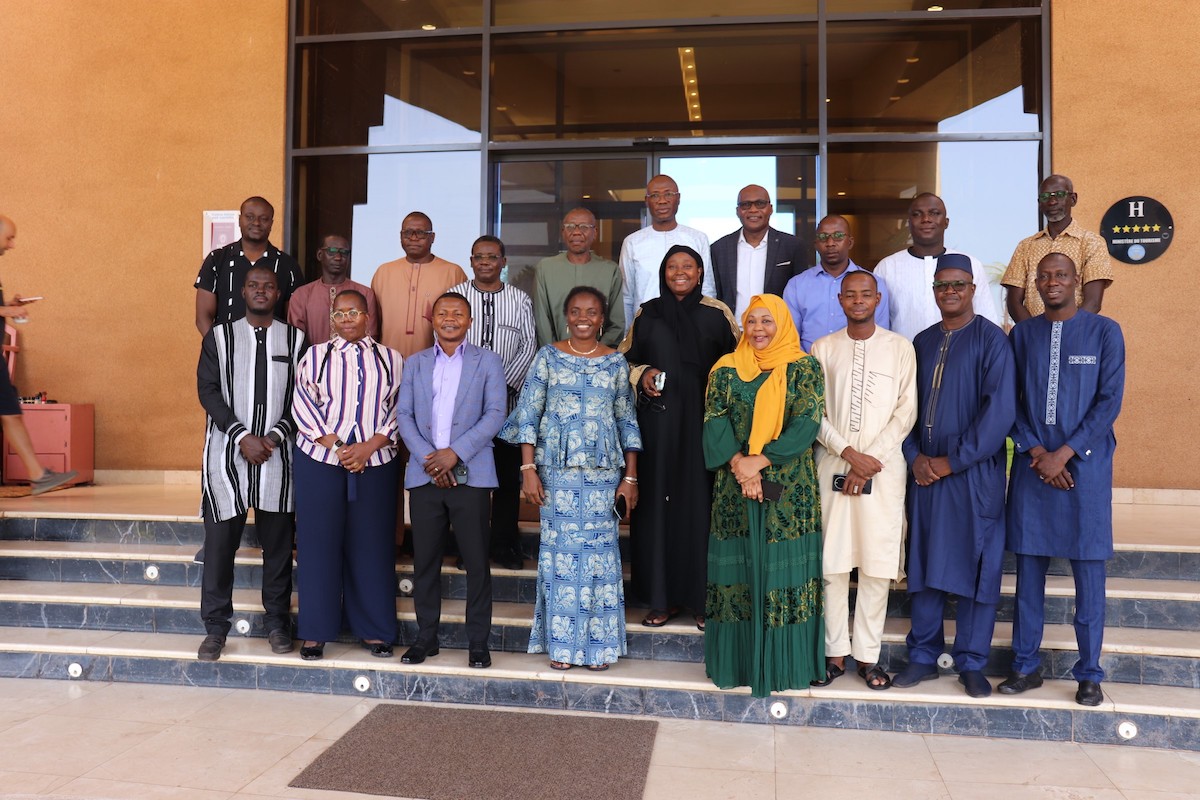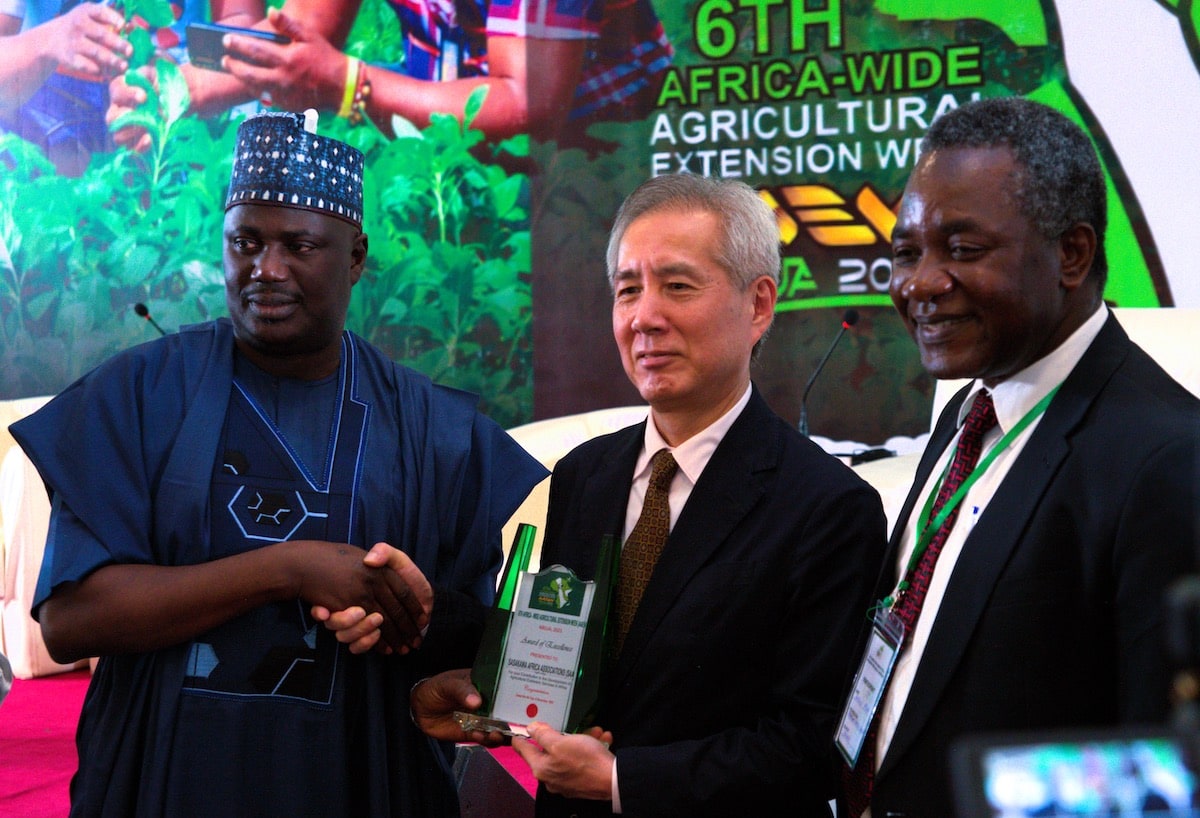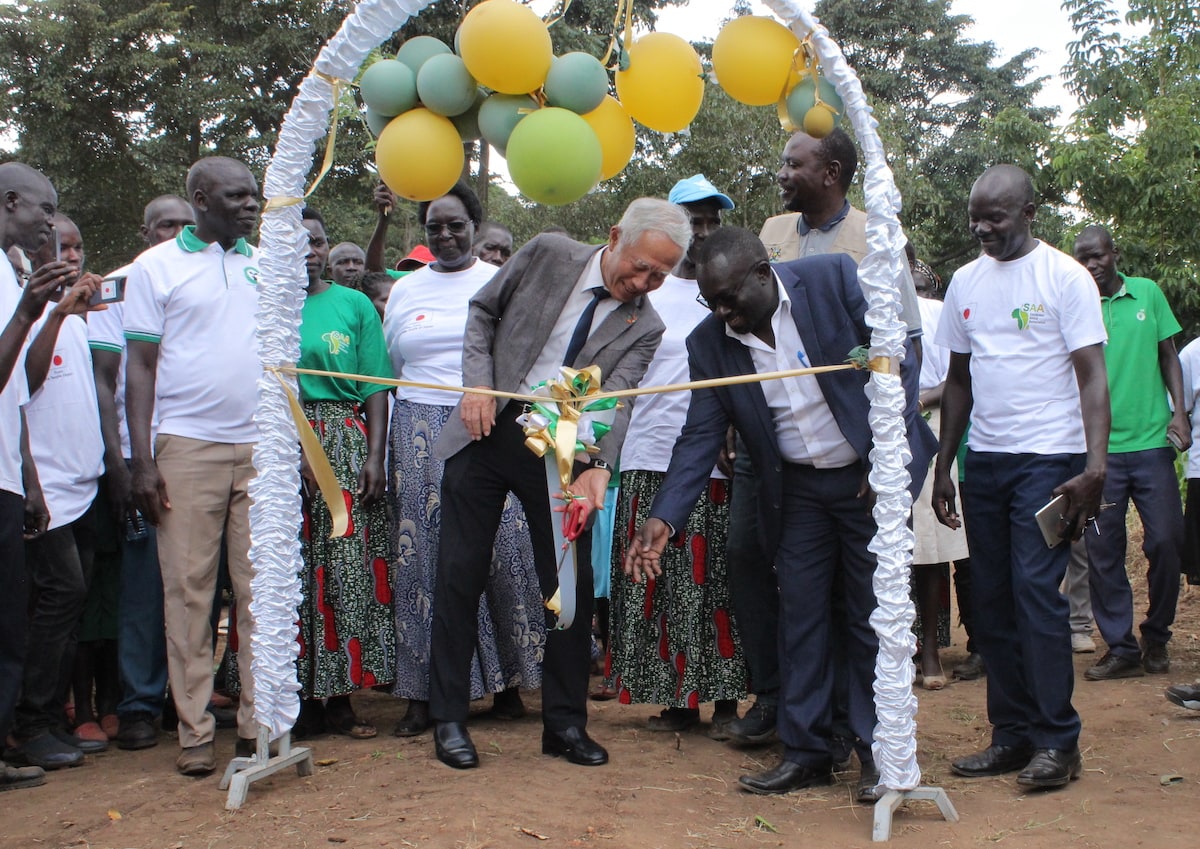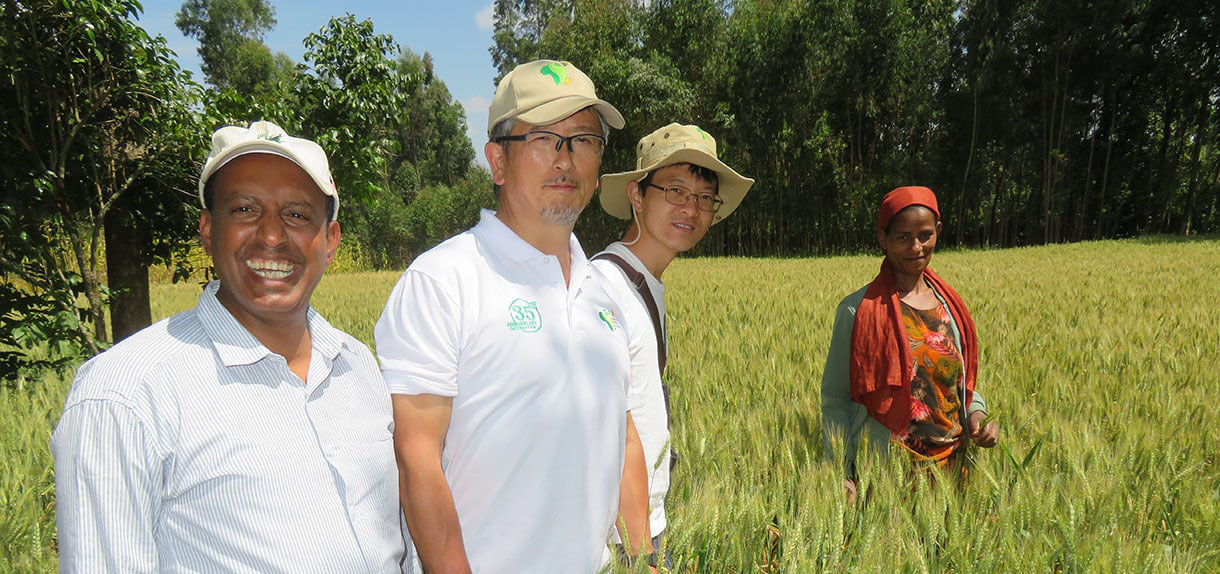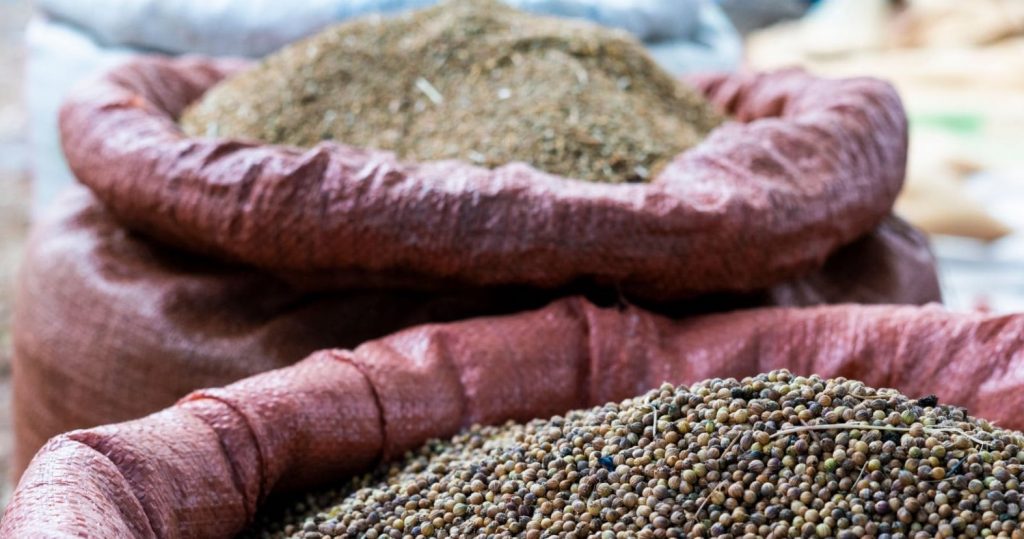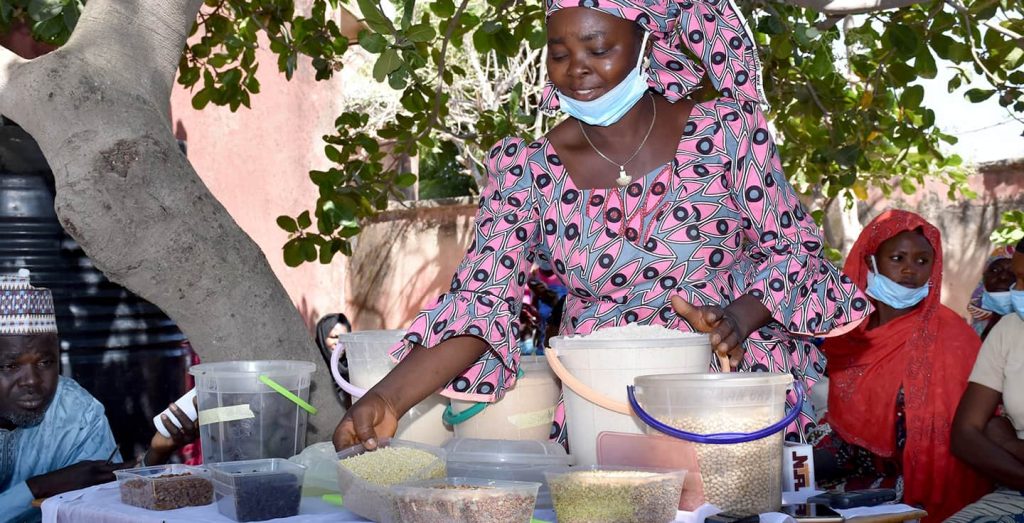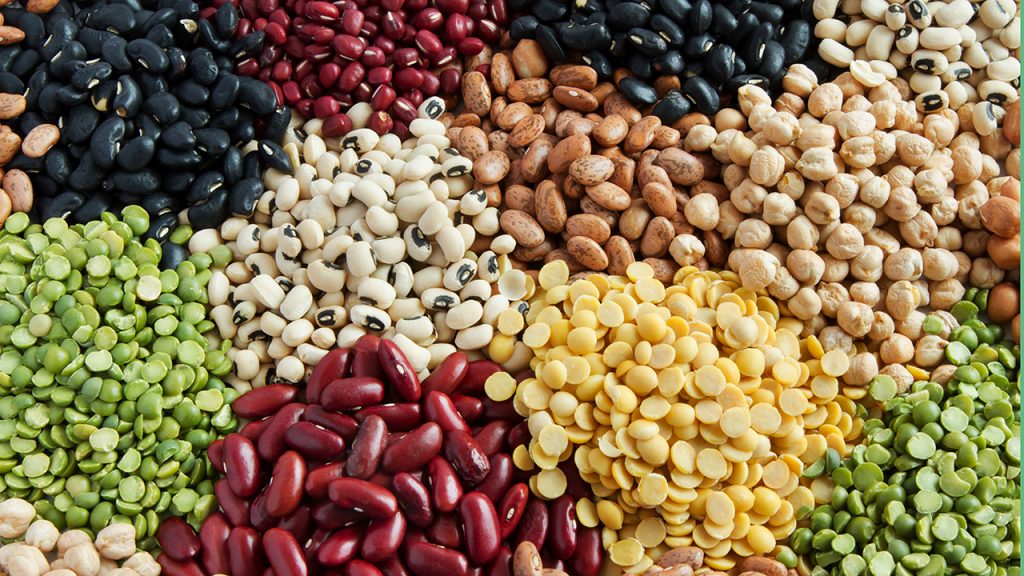2023 Highlights
December 2023
A Message from Dr. Makoto Kitanaka, President of Sasakawa Africa Association
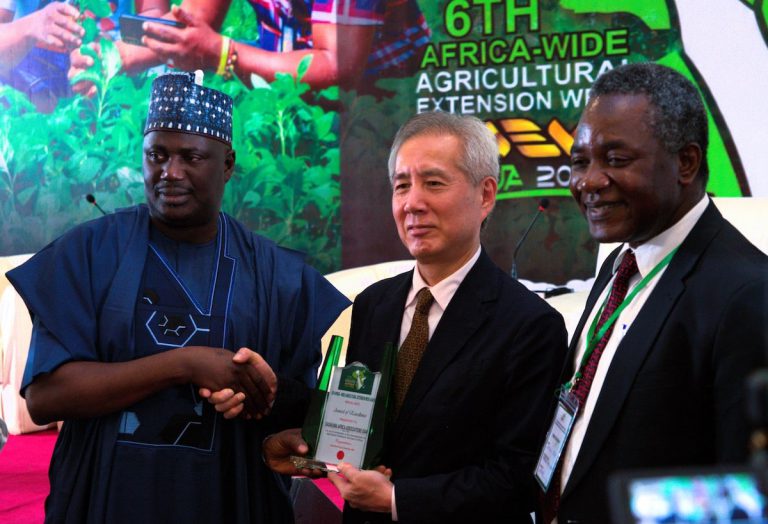
A Message from Dr. Makoto Kitanaka, President of Sasakawa Africa Association
Dear Friends and Partners,
Season’s Greetings!
As 2023 draws to a close, I am filled with pride reflecting on the impactful strides made by Sasakawa Africa Association (SAA) in empowering smallholder farmers across Ethiopia, Mali, Nigeria, and Uganda. Our unwavering commitment to ensuring the sustainable transformation of food systems in Africa through Regenerative Agriculture, Nutrition-Sensitive Agriculture, Market-Oriented Agriculture, inclusivity and capacity building and bolstered by the support of our donors and partners, has been at the heart of our initiatives.
Our teams have tirelessly worked to disseminate knowledge and innovative agricultural technologies, vital for fostering resilient, sustainable, and equitable food systems in Africa. This year’s global focus on agriculture’s role in climate resilience, particularly at COP28, aligns closely with our mission. The significant support pledged to aid smallholder farmers further underscores the importance of our work.
The year 2023 heralded a new era in SAA’s leadership, with Dr. Amit Roy coming in as the Chair of our Board. His leadership, alongside the wisdom of our newly appointed Honorary Advisors, Prof. Ruth Oniang’o and Mr. Yohei Sasakawa, brings fresh perspectives and continuity to our strategic direction.
This year, we also expanded our operational footprint by inaugurating a new office in Abuja, Nigeria. This strategic development enhances our capacity to connect with key partners and stakeholders in a crucial operational region.
Participating in regional events like the Africa Food Systems Forum and the 4th All Africa Post-Harvest Congress and Exhibition has complemented our primary mission, showcasing our contributions and sharing good practices while enhancing our partnership.
As we head into 2024, our dedication to enhancing the livelihoods of smallholder farmers remains steadfast. The growing global emphasis on agriculture and climate change inspires us to continue our vital work.
Thank you for your continued support and partnership in this journey. Together, we forge the path towards a sustainable, food-secure future.
In this issue of our newsletter, we are sharing some success stories and achievements from our program in Ethiopia, Mali, Nigeria, and Uganda.
Enjoy the reading!
Warm regards,
Dr. Makoto Kitanaka
President, Sasakawa Africa Association
Country highlights
Country highlights
SAA’s Impact Felt Across Ethiopia in 2023
The Sasakawa Africa Association (SAA) has been actively contributing to agricultural development in Ethiopia, where it operates in seven woredas and 12 Kebeles across regions like Oromia, Amhara, Sidama, and Central Ethiopia. Recent expansions into Addis Ababa and Oromia’s Jimma zone have extended its impact.
A key focus of the organization’s work is promoting Regenerative Agriculture (RA), with significant progress in design and reach. Benefiting 4,340 individuals, including 1,597 women, the initiative in 2023 featured 239 Community Demonstration Plots (CDP) and 108 permagardens.
Meanwhile, under its Nutrition-Sensitive Agriculture (NSA) pillar, across the year, SAA Ethiopia launched Nutrition Model Villages, built 14 Enterprise Centers, and strengthened 15 agribusiness groups, benefitting 4,470 individuals, including 1,686 women. Market-Oriented Agriculture (MOA) interventions have further benefited 6,226 individuals (1,729 women) through training and market linkages.
Additionally, collaboration with universities over the same period produced 22 capacity-building modules and upgraded facilities at two Farmer Training Centers. Through e-extension initiatives, including the Talking Book and ICT training, reached 2,854 farmers, with about 30% being female, and 66 Extension Agents, including 16 women.
In total, SAA Ethiopia’s interventions in 2023 have impacted over 18,200 individuals, including 5,046 women, 5,217 youth, and 13 people with disabilities. And while challenges persist, including input shortages and security concerns, the SAA’s ongoing efforts continue to underscore a strong commitment to agricultural transformation.
Country Highlights
Country Highlights
SAA Drives Agricultural Success in Mali through Partnerships and Innovations
In 2023, the Sasakawa Africa Association (SAA) has been a driver of progress in Mali’s agricultural landscape. At the core of this agricultural revolution has been a meticulous focus on enhancing farmers’ knowledge and skills across the entire value chain. The year kicked off with a successful seed production program, featuring 360 Community Demonstration Plots and 18 Community-Based Seed Multiplication plots.
The ISSD-Sahel project, a pivotal initiative, distributed 32 tons of certified seeds to 3,400 farmers, promising higher yields and a food secured future. SAA expanded into uncharted territories, not only ensuring high-quality seeds but also navigating marketing intricacies. A notable achievement was a USD6,016 microfinance loan to 137 women farmers, bridging the gap between fields and markets.
SAA Mali’s plan for the year went beyond economic empowerment, extending to fostering better nutrition practices for a holistic community well-being. Collaboration with the Ministry of Agriculture was instrumental, aligning seamlessly with national goals and ensuring a united front for agricultural growth.
A standout feature was the adoption of the Smallholder Horticulture Empowerment and Promotion (SHEP) approach, originally crafted by JICA. This innovative methodology became the heart of agricultural colleges, shaping future extension agents.
Overall, the 2023 SAA narrative in Mali has been defined by strategic partnerships, empowerment, and a resolute commitment to elevate the country’s agricultural sector.
Country Highlights
Country Highlights
SAA-Nigeria Achieves Remarkable Milestones in 2023
In 2023, SAA-Nigeria embarked on a comprehensive mission aimed at elevating its impact on multiple fronts. The organization’s strategic pillars encompass sustaining and amplifying impact at the grassroots level, enhancing the visibility of its initiatives, securing additional resources, cultivating new partnerships, and fortifying existing ones, alongside advancing its capacity-building endeavours. The year, says Country Director, Godwin Atser has unfolded with commendable progress across these three pivotal areas.
A crowning achievement was the prestigious Award of Excellence bestowed upon us by the Federal Government of Nigeria during the Africa-wide Extension Week organized by The African Forum for Agricultural Advisory Services (AFAAS) and the Nigeria Forum for Agricultural Advisory Services (NIFAAS).
SAA Nigeria also inaugurated its new office in Abuja, strategically aligning its operations with the Federal Government and the donor community.
The SAA’s commitment to knowledge sharing has across the year led to the development of six abstracts, five of which were published by AFAAS during the Extension Week, and another presented at the postharvest conference organized by the African Union. Furthermore, we contributed three papers to peer-reviewed journals, significantly elevating the visibility of SAA.
Financially, 2023 marked a triumphant period with the successful attraction of an additional Over $1,350,000 from extra core projects in Nigeria. This financial boost was realized through renewed partnerships with esteemed organizations such as the International Institute of Tropical Agriculture (IITA), GIZ, United Nations Women, African Development Bank (AfDB), and Japan’s Ministry of Foreign Affairs.
In the field, SAA’s extension approach continued to yield positive results, raising productivity, addressing malnutrition challenges, generating incomes and job opportunities, all while contributing to improved soil health.
Country Highlights
Country Highlights
SAA Uganda’s 2023 Triumphs: A Year of Growth, Innovation, and Farmer Empowerment in Sustainable Agriculture
The 2023 journey for SAA Uganda has been one of growth, resilience, and unwavering commitment to the slogan of “Walking with the Farmer.”
This year the organization continued to evolve and innovate, striving to make a lasting impact on the lives of smallholder farmers and communities. From Farmer Learning Platforms to the Safe Demand Driven Curriculum, the field level models exemplify dedication to holistic and sustainable agricultural development.
SAA’s efforts were focused on farmers’ mindset change, promoting Regenerative, Nutrition Sensitive, and Market Oriented Agriculture to revive soil health, address malnutrition, and income generation.
Another highlight was the One Stop Centre Association (OSCA) concept, which supports farmers in gaining access to vital services such as training, inputs, credit, and storage. With support from the Ministry of Foreign Affairs Japan, two new OSCAs have been established. These centers are undoubtedly ideal for empowerment, providing essential services, and fostering entrepreneurial capabilities.
Achievements in supporting the market linkage of farmers’ agricultural products, introducing the Village Agent Model, and transforming smallholder farming through the Agricultural Market Support program in Karamoja reinforced SAA’s profound impact on the agricultural landscape.
“None of this would have been possible without the unwavering dedication of the team, the support of partners like World Food Programme and donors, and the steadfast commitment of farmers. Encouraging progress and transformative impacts have been witnessed within the communities served,” said SAA Uganda’s Deputy Country Director, Paschal Joseph Bbemba.
As the organization reflects on the year gone by, Mr. Bbemba hopes to carry the lessons learned and the successes achieved into the new year.
“Together, there will be continued tireless work towards building resilient and sustainable food systems, ensuring prosperity for Uganda’s communities,” he said.
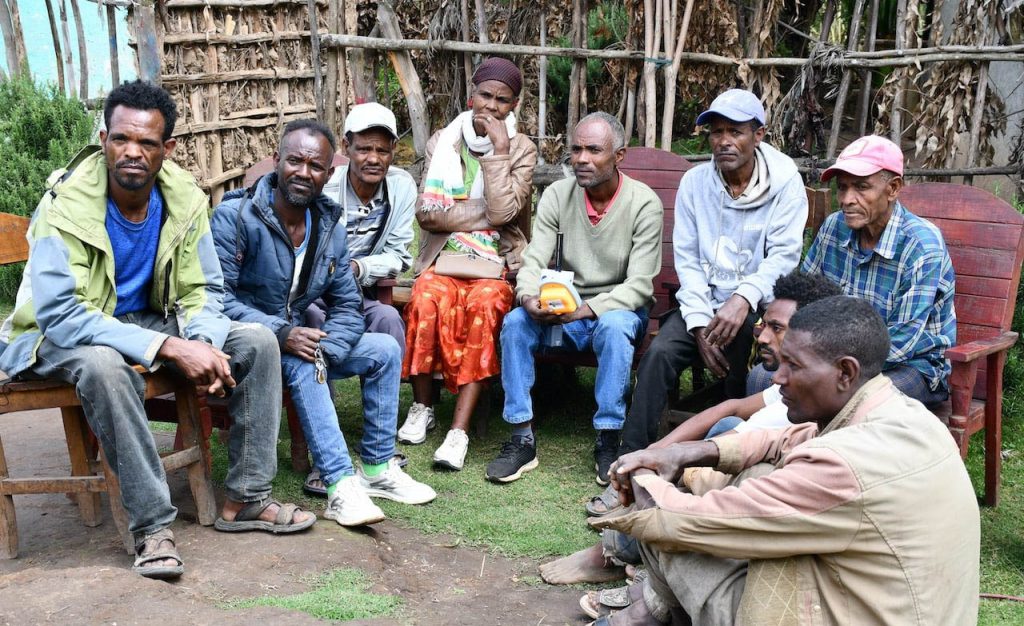
Voices from the Field
Voices from the Field
How the Digital Device ‘Talking Book’ is Enhancing Agriculture in Ethiopia
Temesgen Girma, a 30-year-old father of five from the Shino Funamura Kebele in Ethiopia’s Angacha district, has been the Sasakawa Africa Association’s (SAA’s) host farmer since 2021. His enterprise as a farmer has over that duration transformed several-fold thanks to education on regenerative, nutrition-sensitive, and market-oriented agriculture.
Temesgen credits the Talking Books (TBs), a digital extension system provided by SAA in partnership with Amplio, for significantly enhancing his knowledge. The Talking Book is a battery-powered digital tool that delivers pre-recorded Good Agricultural Practices (GAPs) to farmers. This innovative tool allows farmers to access GAP messages at their convenience, ensuring timely and relevant information transfer. In the Temesgen’s district alone, over 420 farmers have benefited from TBs, improving their farming practices.
Temesgen says he has gained insights into various farming techniques, such as composting, planting methods, fertilizer application, crop rotation, soil and water conservation, and marketing strategies. Today, he has successfully established an improved composting set up and is cultivating a diverse range of vegetables in his permagarden, including cabbages, beetroots, carrots, and peppers.
Temesgen further lauds the triple benefits of SAA’s interventions, emphasizing that they have improved his family’s nutrition, taught him about diverse diets, and introduced him to new economic opportunities.
“These fresh vegetables not only contribute to my family’s healthy diet, but they also provide a source of income, as the marketing skills I learned enable me to sell surplus produce,” he said.
He also recognizes the positive impact of TB enabled messages on soil health and productivity. He remains eager to continue sharing the knowledge gained from SAA with his community.
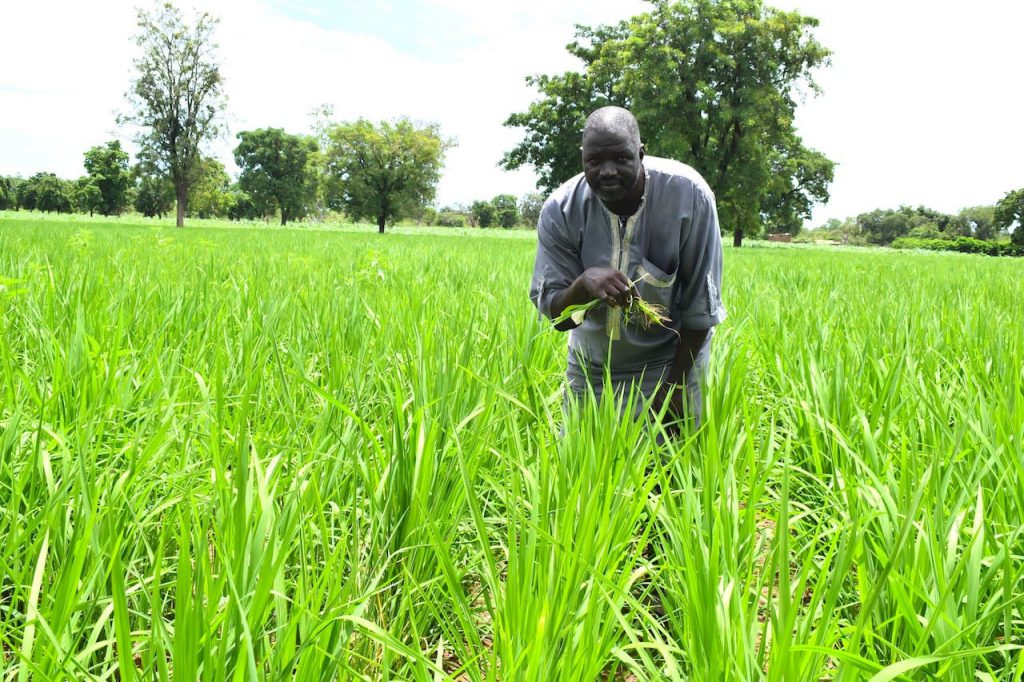
Voices from the Field
Voices from the Field
Malian Farmer Credits SAA for Transforming his Community’s Food Security
“There was a time when hunger loomed over us,” said Malian farmer Mamadou Djan Keita. “But now, with improved agricultural practices, rice is no longer a luxury but a staple in our diet,” he added.
Keita attributes the changing fortunes of his community to the Sasakawa Africa Association (SAA), which has trained farmers on the best agricultural practices, including post-harvest management. He affectionately referred to SAA as “SASAKAFA,” meaning “eating well” in his local dialect, as a testament to the significant impact SAA’s intervention has had on his community’s food security.
The SAA supported the establishment of a Production and Post-Harvest Trading/Training Center (PHTC) in Siranikoto, which has been instrumental in uniting 10 primary cooperatives across different villages. This has significantly enhanced their operational efficiency in delivering the necessary support to communities, fostering sustainable agricultural practices. Keita is the president of the Center.
Keita attributes SAA’s hands-on training for bringing hope to thousands who depend on agriculture for their livelihoods. He acknowledges the crucial role of the quality seeds introduced by SAA and commended the organization’s work in establishing community-based seed multiplication plots within his community. Such technologies, he said, have helped transform the quality of harvests in the region.
“We are steadily marching towards food self-sufficiency,” he said.
Other simple agricultural techniques such as practices like mulching, utilizing crop residues, compost production and use, and crop rotation have also been instrumental in enhancing soil fertility and yields.
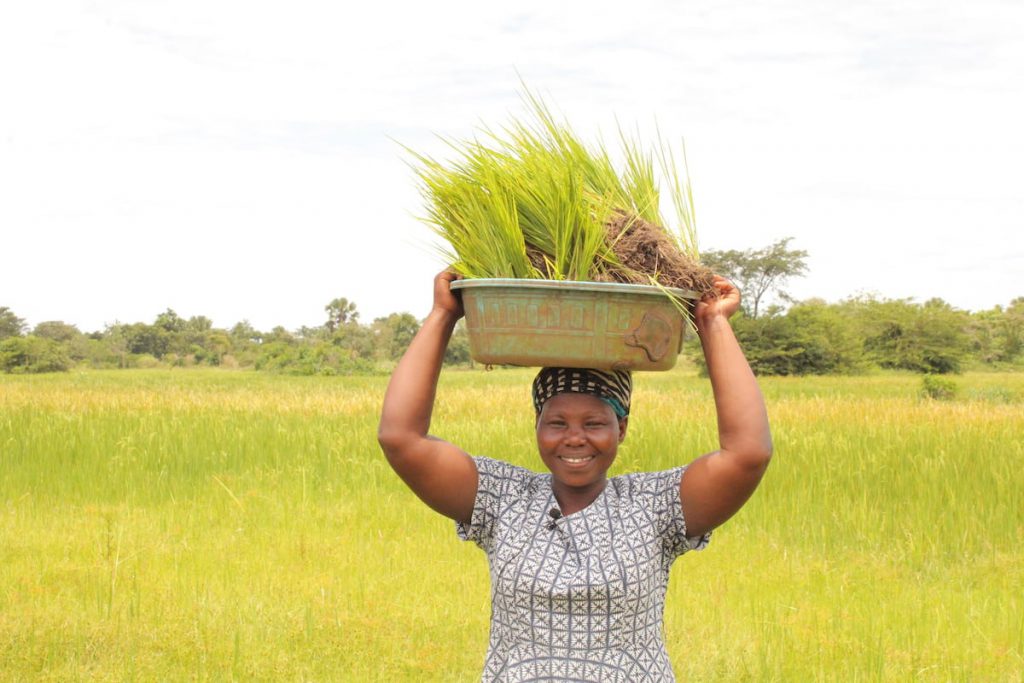
Voices from the Field
Voices from the Field
From Struggling Fields to Thriving Fortunes in Uganda: Adong Caroline’s Agricultural Triumph
Caroline Adong, 42, from Awili Village, Okweredot Subcounty in Uganda’s Kole District, faced challenges in traditional farming due to outdated techniques and poor soil management. This resulted in unpredictable yields and financial difficulties, impacting her family’s well-being and her children’s education.
In 2022, Adong joined the Obang-en-mar farmer group, specializing in maize and soybean production. The group underwent comprehensive training from the Sasakawa Africa Association (SAA), covering line-planting, improved seed usage, effective crop spraying, postharvest management, and optimal drying methods.
SAA’s guidance also encompassed marketing strategies, enabling farmers to negotiate prices and find profitable markets.
“Sasakawa’s teachings have transformed my life,” said Adong.
In the first season harvest of the year, Adong earned over $250 from maize and an additional $270 from rice sales. She invested the earnings in a second-hand milling machine to add value to her produce and expanded her cultivation to 10 acres. Her success has extended beyond her fields; she is now a quality seed multiplier for Nerica Rice, known for its superior quality and improved yields, benefiting the community.
Adong actively shares her knowledge through training sessions on planting, harvesting, and post-harvest handling. Her efforts have created a ripple effect, after fellow farmers witnessed improved yields and adopting better agricultural practices.
Beyond farming, Adong opened a store in Arua, selling a variety of produce, including groundnuts, rice, cassava flour, posho, and millet. Her journey is not only transforming Awili Village but also serves as evidence of how empowering farmers can lead to widespread prosperity.
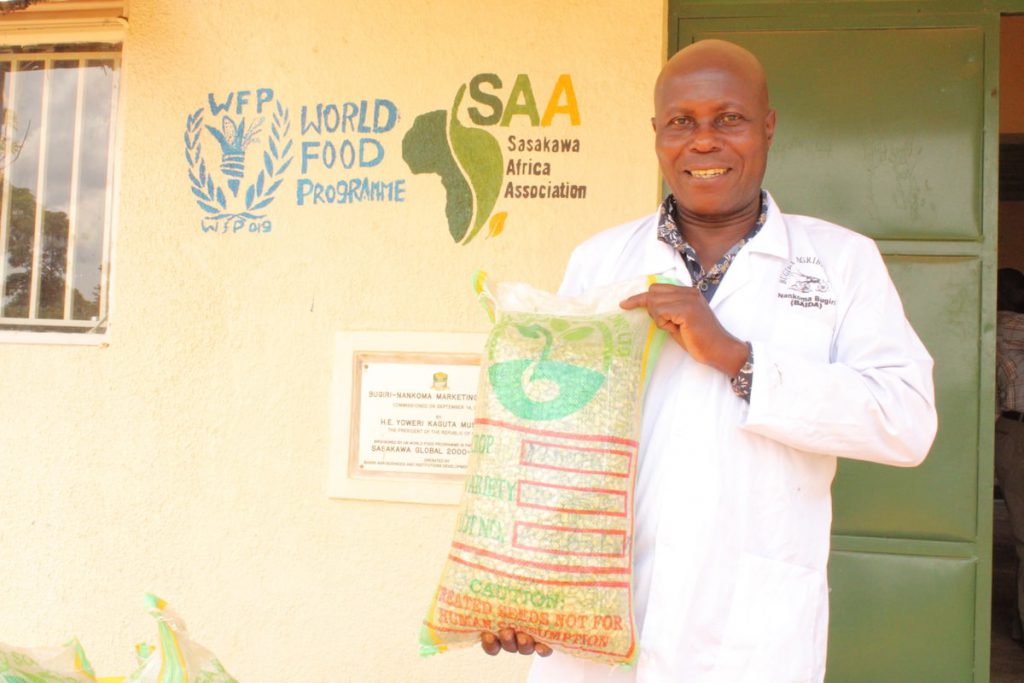
Voices from the Field
Voices from the Field
Advancing Agriculture in Bugiri: How OSCA Initiatives Are Nurturing Growth and Market Opportunities
Bugiri district in Eastern Uganda has undergone significant agricultural and economic transformation, thanks to strategic interventions by the Sasakawa Africa Association (SAA). SAA introduced improved maize seeds, proper fertilizer application, and sustainable agriculture training, into the region triggering positive changes. In 2009, addressing storage challenges, SAA partnered with the World Food Program to establish the One Stop Agricultural Centre Association (OSCA) at the Bugiri Agribusiness and Institutions Development Association (BAIDA).
OSCA, a key regional player, can bulk over 300 metric tons of grain. From 2012 to 2016, it successfully sold grain to distant markets like Kisumu and Eldoret in neighboring Kenya, showcasing Bugiri’s expanding market influence. To combat falling maize prices, SAA supported BAIDA in securing assistance from the local government. This led to acquiring a multipurpose hauler milling machine and tractor, facilitating a shift to value addition. This not only doubled income but also produced high-quality maize flour, commanding a premium market price of UGX2,000 per kilogram.
The facility attracts 50 to 200 farmers daily for milling services, offering high-quality flour in various bag sizes. Beyond milling, OSCA provides tractor services, employment opportunities, and has recently ventured into animal feed production, boosting the demand for maize, while enhancing Bugiri’s economic growth. Empowered by SAA, OSCA transformed into a multifaceted agricultural service provider, inspiring BAIDA to aspire to be a major export market player by investing in storage facilities and empowering local farmers.
For the full story, visit
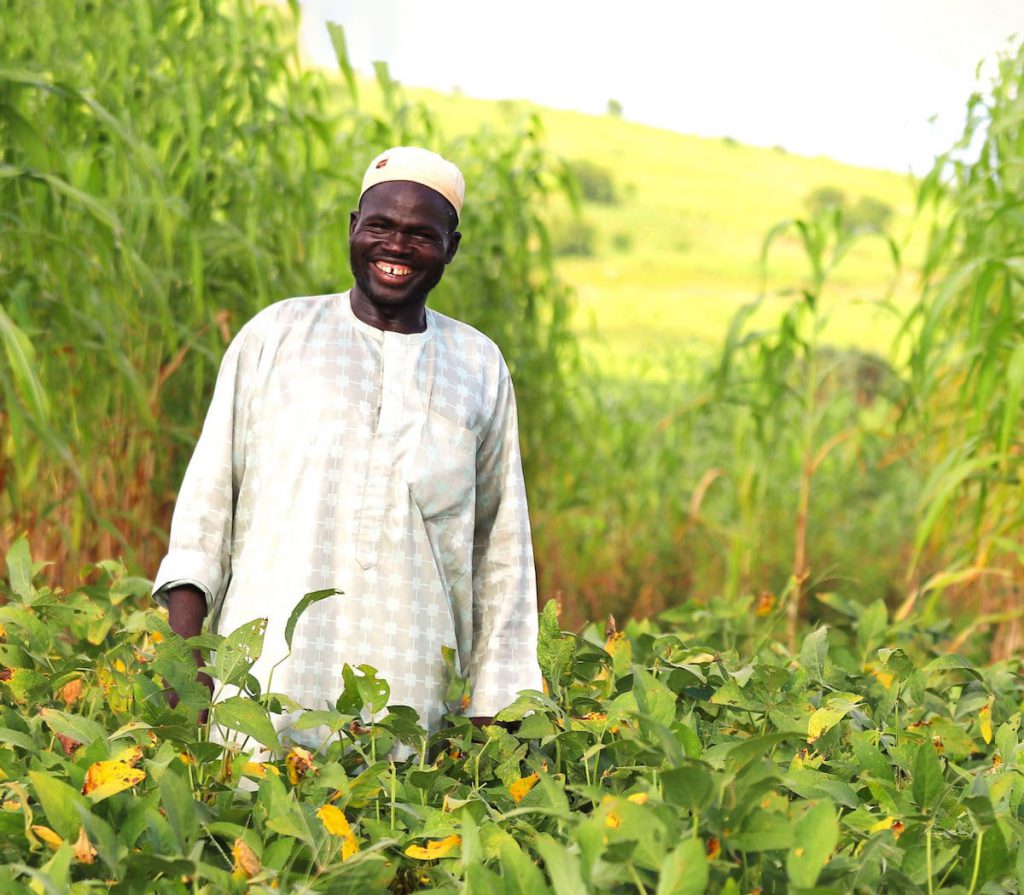
Voices from the Field
Voices from the Field
From Struggling Farmer to Visionary Agricultural Entrepreneur in Nigeria
Mallam Idris Umar from Swa community in the Balanga Local Government of Nigeria’s Gombe State, has transitioned from agricultural strife into a visionary farmer, inspired by training and agricultural support from the Sasakawa Africa Association (SAA).
Just last year, Umar harvested three bags of soybean from his 0.25-hectare that previously only yielded one bag. He sold the harvest for 90,000 Naira (USD117) to buy a calf that has now grown into a cow valued at 300,000 Naira (USD388).
Pre-SAA, Umar struggled with traditional farming techniques. His path to transformation was charted early 2022, when SAA, with funding from The Nippon Foundation, set up a training program for Umar’s cooperative group, the Dilyiro MPCS Limited. The session covered Good Agricultural Practices, including optimized fertilizer application, and integrated composting into his farming practices.
Umar implemented the lessons on his modest soybean farm, which has now transformed into a money-maker. By adopting narrower seed spacing, he enhanced air circulation and effectively minimized the threat of pests and diseases. He also learnt to compost livestock manure, a skill that now helps him to enhance the fertility of his soil and moisture retention while effectively managing waste within his property.
Mallam Idris Umar’s story is a powerful reminder of the transformative impact that targeted training and the adoption of modern agricultural practices can have on the lives of smallholder farmers and their communities. His journey serves as inspiration to embrace innovation in driving sustainable agricultural transformation.
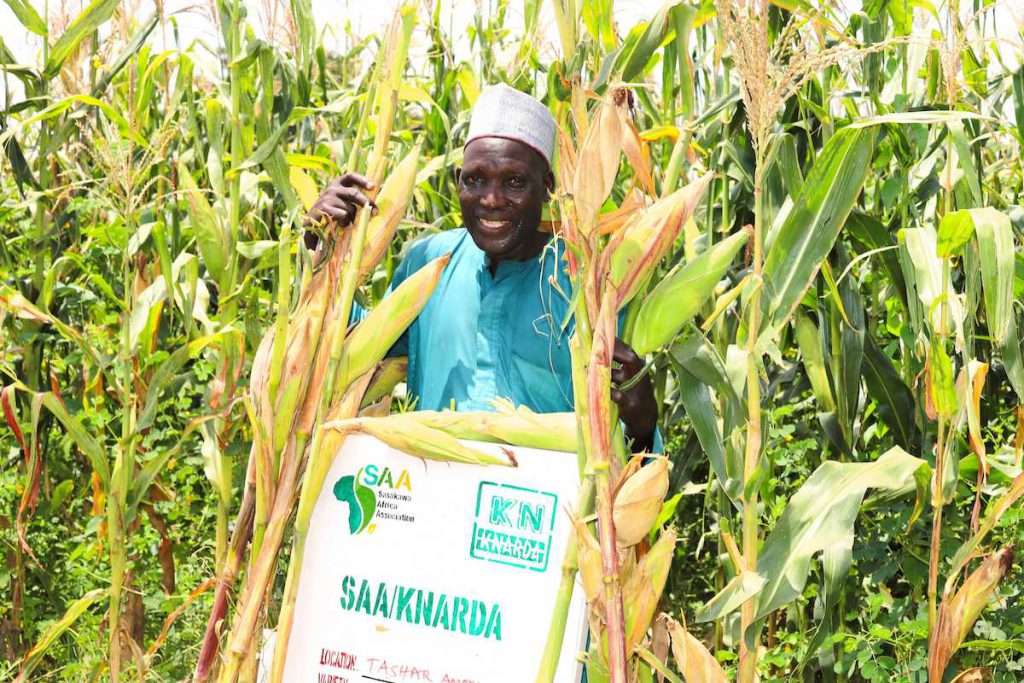
Voices from the Field
Voices from the Field
Integrated Soil Fertility (ISFM) helped Nigerian Farmer Slashes Labor Costs while and Boosting Yield
Abdulmumini Adamu has significantly reduced his labor costs by 85%, from NGN35,000 (USD46) to NGN5000 (USD7), since adopting minimum tillage on his quarter-hectare maize farm in the Tasha Garabi region of Nigeria’s Kano State. This shift in farming practices followed his training on Integrated Soil Fertility Management (ISFM) and Conservation Agriculture (CA) provided by the Sasakawa Africa Association. The comprehensive training covered essential topics such as minimum tillage, mulching, crop rotation, and composting.
The advantages for Mr. Adamu extend beyond cost savings; his crop yields have surged by an impressive 50%. This boost is attributed to the enhanced soil health and moisture retention resulting from the sustainable agricultural practices recommended in the training.
SAA’s promotion of minimum tillage aligns with its Regenerative Agriculture Pillar, part of a broader commitment to promoting sustainable and cost-effective agricultural practices. Through the integration of Conservation Agriculture and Integrated Soil Fertility Management in farmers’ activities, SAA aims to empower smallholder farmers like Adamu in achieving sustainable agricultural intensification. This approach not only improves productivity but also ensures environmental stewardship and serves as a model for sustainable farming practices in Nigeria and beyond.
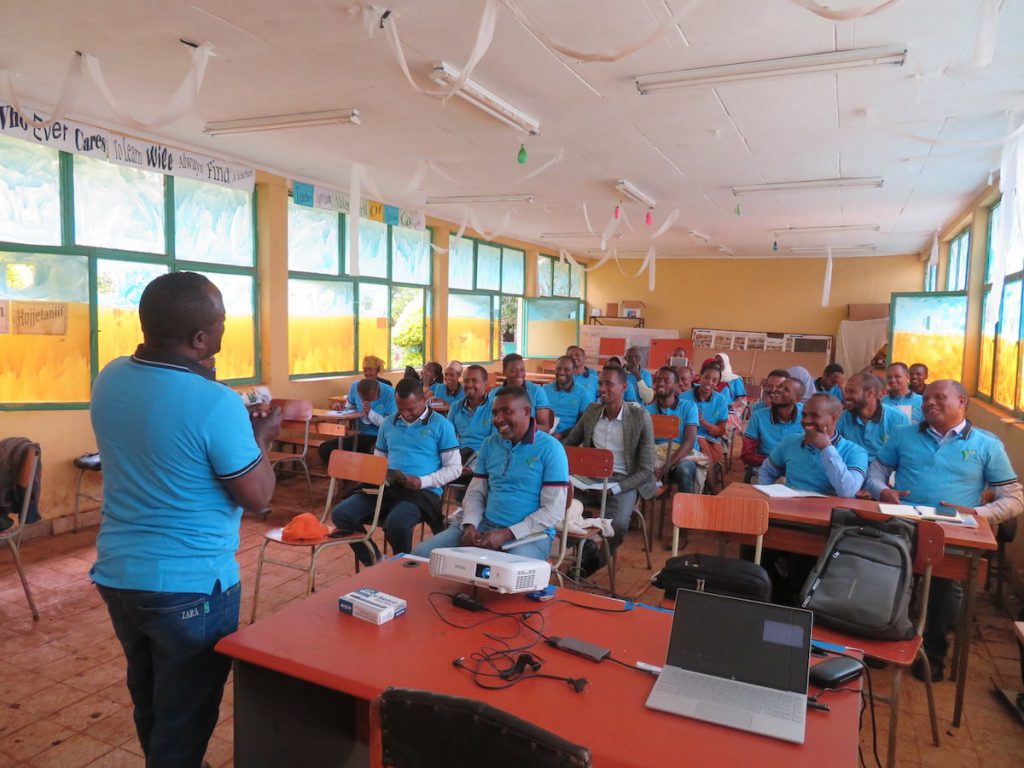
Activities
Activities
SAA-Ethiopia Launches Groundbreaking Regenerative Agriculture Project in Oromia
On November 2, 2023, SAA-Ethiopia kickstarted the transformative EbRACCA project, a three-year project funded by the Japan Policy and Human Resources Development Grant (PHRDG). Nestled in the Seka-chekorsa district of Oromia, this initiative aims to promote the adoption of regenerative agriculture to fortify climate resilience. The project’s inauguration brought together 35 experts and officials in a collaborative effort to elevate smallholder farmers. With a strategic emphasis on evidence-based practices and technology dissemination, EbRACCA aspires to catapult productivity and livelihoods, aiming to directly benefit over 100,000 and indirectly impact 250,000 individuals by 2025.
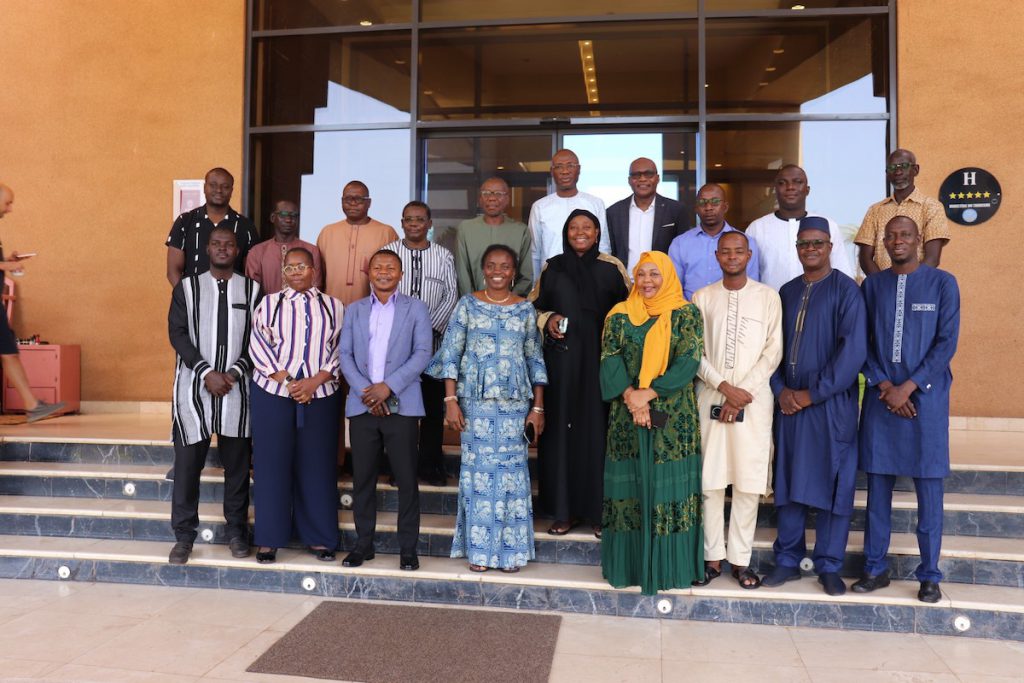
Activities
Activities
SAA Unites with Partners at Annual Retreat in Mali
From September 12 to 15, 2023, members of IFDC, SAA, ICRISAT, and KIT Royal Tropical Institute gathered for the ISSD Sahel project’s annual retreat at the Hôtel Salam in Bamako. The primary objective of this event was to facilitate collaboration and knowledge sharing, aiming to establish a unified framework for coordinated action. The focus was on aligning and integrating implementation strategies and interventions for the project. SAA was represented by the country director, Dr. Hamado Tapsoba, M&E coordinator Abdoulaye Koureissi, and all SAA ISSD-Sahel staff based in Mali and Niger. During the retreat, consortium members deliberated to clarify and ensure a shared understanding of roles and responsibilities. The outcome was the joint development of the work plan and budget for the year 2024. Beyond the professional aspects, the retreat provided an excellent opportunity for participants to foster team spirit, engage in reflection and learning, explore new perspectives, and enjoy social moments together. The overarching theme of “one team, one approach, one message” encapsulated the spirit of unity and collaboration that characterized the event.
EVENTS
Events
SAA Stands Out During Africa-Wide Agricultural Extension Week
The Sasakawa Africa Association (SAA) played a pivotal role in the 6th Africa-Wide Agricultural Extension Week (AAEW2023) held in Abuja, Nigeria, from November 5 to 11, 2023. During the event, SAA advocated for the crucial role of extension and advisory services (AEAS) in Africa’s agricultural transformation. Dr. Makoto Kitanaka, the President of SAA, emphasized the vital function of AEAS in disseminating agricultural technologies and knowledge among farmers in his keynote address. He highlighted SAA’s extensive experience in providing AEAS across Africa, reaffirming the organization’s commitment to sustainable agricultural development.
SAA’s involvement extended beyond the keynote address, actively participating in plenary sessions and panel discussions on various AEAS topics, including climate-smart agriculture, digital agriculture, and inclusive extension approaches. These contributions sparked dialogue and potential collaborations with diverse stakeholders.
At the event, SAA also set up an informative booth showcasing its work and programs, attracting numerous visitors, and fostering connections with potential partners. A significant moment was the inauguration of the SAA Nigeria Abuja office, attended by the Japanese Ambassador to Nigeria and other dignitaries. This event symbolized SAA’s dedication to Nigeria’s agricultural sector and received acclaim for its contribution to agricultural development.
The AAEW2023 served as a valuable platform for SAA to amplify its message of prioritizing AEAS for agricultural transformation across Africa. Through active engagement, expertise sharing, and a visible presence, SAA reinforced its status as a leading advocate for sustainable agriculture on the continent.
For the related article about the launch of the Abuja Office, visit
Events
SAA Stands Out During Africa-Wide Agricultural Extension Week
The Sasakawa Africa Association (SAA) played a pivotal role in the 6th Africa-Wide Agricultural Extension Week (AAEW2023) held in Abuja, Nigeria, from November 5 to 11, 2023. During the event, SAA advocated for the crucial role of extension and advisory services (AEAS) in Africa’s agricultural transformation. Dr. Makoto Kitanaka, the President of SAA, emphasized the vital function of AEAS in disseminating agricultural technologies and knowledge among farmers in his keynote address. He highlighted SAA’s extensive experience in providing AEAS across Africa, reaffirming the organization’s commitment to sustainable agricultural development.
SAA’s involvement extended beyond the keynote address, actively participating in plenary sessions and panel discussions on various AEAS topics, including climate-smart agriculture, digital agriculture, and inclusive extension approaches. These contributions sparked dialogue and potential collaborations with diverse stakeholders.
At the event, SAA also set up an informative booth showcasing its work and programs, attracting numerous visitors, and fostering connections with potential partners. A significant moment was the inauguration of the SAA Nigeria Abuja office, attended by the Japanese Ambassador to Nigeria and other dignitaries. This event symbolized SAA’s dedication to Nigeria’s agricultural sector and received acclaim for its contribution to agricultural development.
The AAEW2023 served as a valuable platform for SAA to amplify its message of prioritizing AEAS for agricultural transformation across Africa. Through active engagement, expertise sharing, and a visible presence, SAA reinforced its status as a leading advocate for sustainable agriculture on the continent.
For the related article about the launch of the Abuja Office, visit
Events
SAA Unveils Transformative Agricultural Hubs in Uganda’s Karamoja Region
The Sasakawa Africa Association (SAA) recently launched two vital agricultural hubs in Uganda’s Karamoja region: the Bala Women and Youth Cooperative in Kole district, and the Apeitolim Farmers Association in Napak district. Supported by the Ministry of Foreign Affairs of Japan, this falls under the “Revitalization and Digitalization of Multipurpose Agricultural Cooperatives in Uganda” project. With the goal of combating rural poverty and food insecurity, these hubs provide essential facilities such as grain stores, maize mills, input shops, and solar-powered irrigation systems. The events were graced by the Ambassador of Japan, H.E. Hidemoto Fukazawa, and Uganda’s State Minister of Agriculture, Fred Bwino Kyakulaga, as well as over 1000 farmers, officials, and other stakeholders. These agricultural hubs seamlessly integrate advanced technologies and market-oriented strategies into their operations. SAA’s comprehensive approach is anticipated to generate employment, boost farmer incomes, and enhance post-harvest management, aligning with Uganda’s agro-industrialization objectives. By promoting sustainable agricultural practices and fostering economic empowerment, these hubs are poised to revolutionize the agricultural landscape of Karamoja, marking a significant milestone in Uganda’s agricultural advancement.
Events
SAA Unveils Transformative Agricultural Hubs in Uganda’s Karamoja Region
The Sasakawa Africa Association (SAA) recently launched two vital agricultural hubs in Uganda’s Karamoja region: the Bala Women and Youth Cooperative in Kole district, and the Apeitolim Farmers Association in Napak district. Supported by the Ministry of Foreign Affairs of Japan, this falls under the “Revitalization and Digitalization of Multipurpose Agricultural Cooperatives in Uganda” project. With the goal of combating rural poverty and food insecurity, these hubs provide essential facilities such as grain stores, maize mills, input shops, and solar-powered irrigation systems. The events were graced by the Ambassador of Japan, H.E. Hidemoto Fukazawa, and Uganda’s State Minister of Agriculture, Fred Bwino Kyakulaga, as well as over 1000 farmers, officials, and other stakeholders. These agricultural hubs seamlessly integrate advanced technologies and market-oriented strategies into their operations. SAA’s comprehensive approach is anticipated to generate employment, boost farmer incomes, and enhance post-harvest management, aligning with Uganda’s agro-industrialization objectives. By promoting sustainable agricultural practices and fostering economic empowerment, these hubs are poised to revolutionize the agricultural landscape of Karamoja, marking a significant milestone in Uganda’s agricultural advancement.
Events
SAA-Ethiopia Showcases Innovations in Sustainable Agriculture
SAA-Ethiopia participated in the prestigious Food Exhibition organized by the Food and Nutrition Office (FNO) of the Ministry of Agriculture on November 16, 2023. The event focused on “Sustainable Agri-food System for a Healthy and Nutritious Diet.” With 300 guests present, SAA highlighted its initiatives in nutrition-sensitive agriculture and postharvest management, showcasing key technologies like threshers, hermetic grain storages, and more. Notable officials, including H.E Dr. Girma Amente, Minister of Agriculture and Natural Resources, H.E. Dr. Fikru Regassa, Dr. Namukolo Covic, and Ms. Alemtsehay Sergawi, recognized the significance of digital extension tools for knowledge transfer and ensuring sustainable food security in Ethiopia.
Events
SAA-Ethiopia Showcases Innovations in Sustainable Agriculture
SAA-Ethiopia participated in the prestigious Food Exhibition organized by the Food and Nutrition Office (FNO) of the Ministry of Agriculture on November 16, 2023. The event focused on “Sustainable Agri-food System for a Healthy and Nutritious Diet.” With 300 guests present, SAA highlighted its initiatives in nutrition-sensitive agriculture and postharvest management, showcasing key technologies like threshers, hermetic grain storages, and more. Notable officials, including H.E Dr. Girma Amente, Minister of Agriculture and Natural Resources, H.E. Dr. Fikru Regassa, Dr. Namukolo Covic, and Ms. Alemtsehay Sergawi, recognized the significance of digital extension tools for knowledge transfer and ensuring sustainable food security in Ethiopia.
Events
SAA HQ Team Visits Ethiopia Projects Showcasing Sustainable Practices and Technological Integration
Mid–November 2023, SAA HQ staff, including Mr. Junichi Hanai and Mr. Toshiki Sakiyama, accompanied by Dr. Berhanu Amsalu from SAA Ethiopia, conducted a monitoring visit to agricultural projects in Ethiopia. Assessing the PREMAP-II project and Core project, funded by Japan’s Ministry of Foreign Affairs and the Nippon Foundation, respectively, they inspected new farmer training facilities, solar-powered water wells, and e-kakashi systems in Aleta Wondo. In Angacha, the team reviewed agro-dealer activities, women’s agro-processing, and Diffused Light Storage technologies. The visit showcased regenerative agriculture practices, emphasizing the integration of technology for sustainable local development.”
Events
SAA HQ Team Visits Ethiopia Projects Showcasing Sustainable Practices and Technological Integration
Mid–November 2023, SAA HQ staff, including Mr. Junichi Hanai and Mr. Toshiki Sakiyama, accompanied by Dr. Berhanu Amsalu from SAA Ethiopia, conducted a monitoring visit to agricultural projects in Ethiopia. Assessing the PREMAP-II project and Core project, funded by Japan’s Ministry of Foreign Affairs and the Nippon Foundation, respectively, they inspected new farmer training facilities, solar-powered water wells, and e-kakashi systems in Aleta Wondo. In Angacha, the team reviewed agro-dealer activities, women’s agro-processing, and Diffused Light Storage technologies. The visit showcased regenerative agriculture practices, emphasizing the integration of technology for sustainable local development.”
